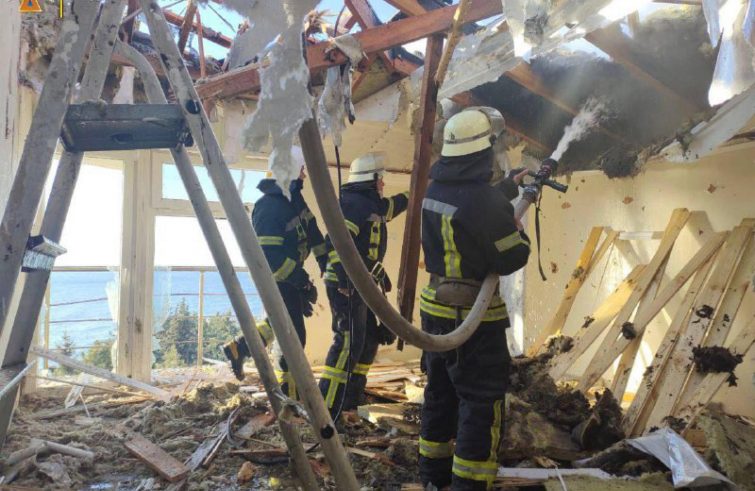
“I know the people of Ukraine, and I also know the people of Russia. I can safely say that both peoples are suffering from the war. However, I must also say that this war has direly changed Ukraine.” Sister Teresa Matyja, Salesian nun of the order of Mary Help of Christians, talks on the phone from Odessa with a gentle yet firm tone of voice. She describes a besieged city where hopes of victory linger on in spite of everything
“We live in the centre of Odessa,” she says, ” here are three of us: two from Poland and one from Slovakia.
We decided to remain because it seemed the right thing to do. The local population needs us, they need the presence of the Church.
This is true for civilians as wells as for the soldiers.”
The nuns thereby provide support and relief activities throughout the city. “We are helping hospitals, families, soldiers, orphanages. Two of us also do voluntary work at Caritas. We go to our parish church every day, despite the fact that it is located in the most dangerous area, near the port.” The nuns also accommodate two young students who are working in hospitals during the day.
“One of our duties,” says Sister Teresa, “is to collect and distribute the food and aid supplies coming in.”
In fact, after the most difficult first few days, Odessa is receiving a steady flow of supplies from Poland, Moldova and Romania. “Obviously – she continues – the delivery of relief supplies is growing increasingly difficult, but we are supported by the Polish Church and by humanitarian organisations”.
The active support of the Church, and of the Salesians in particular, is complemented by an organisation of local volunteers dedicated in particular to healthcare provision in hospitals and child care.
How is the life in the city? “Odessa is well equipped,” explains Sr. Teresa. “The city has not been devastated by the bombings. Many residents have fled, but the majority are still here. Indeed, we hear gunfire and explosions. Emergency sirens ring overnight. But I don’t think that the Russians will arrive by sea, perhaps via two overland routes.” The war, however, is threatening the efforts of the Church and of civilians. “We have been repeatedly asked, and again recently by our Mother General, whether we are afraid and wish to leave,” she says.
Of course we are afraid, but we believe that our place is here.
Nevertheless, there is uncertainty as to whether the Russian army will conquer the city. “It is a possibility that we have not taken into account. We have no idea what we will do”, explains Sr Teresa. She adds: “in the city, however, everyone is sure that Ukraine will win.” Yet the war and the sudden changes it has caused, prompts Sister Theresa to reflect on issues that transcend present-day reports. “I have been working with the ex-Soviet Union countries for many years,” she goes on to explain. “In fact, my first destination – from 1993 to 2003 – was Odessa. Then I moved to Poland and after a period of studies in Italy, I went to Georgia where I arrived during the wartime period. Then in 2014 I went to Moscow, and in 2018 I returned here in Odessa.” Sister Teresa thus points out:
“Odessa has always been a multicultural city, where Russian was the most widely spoken language. At least until the war. But now almost everyone speaks Ukrainian. Young people, especially today, feel that this land is their land, their homeland.
This was not the case in the 1990s and until recently.
She goes on to talk about the two peoples: “I know both Ukrainians and Russians. And I understand that many of them on both sides are suffering from this war, but there is nothing they can do. And this is tragic.”









